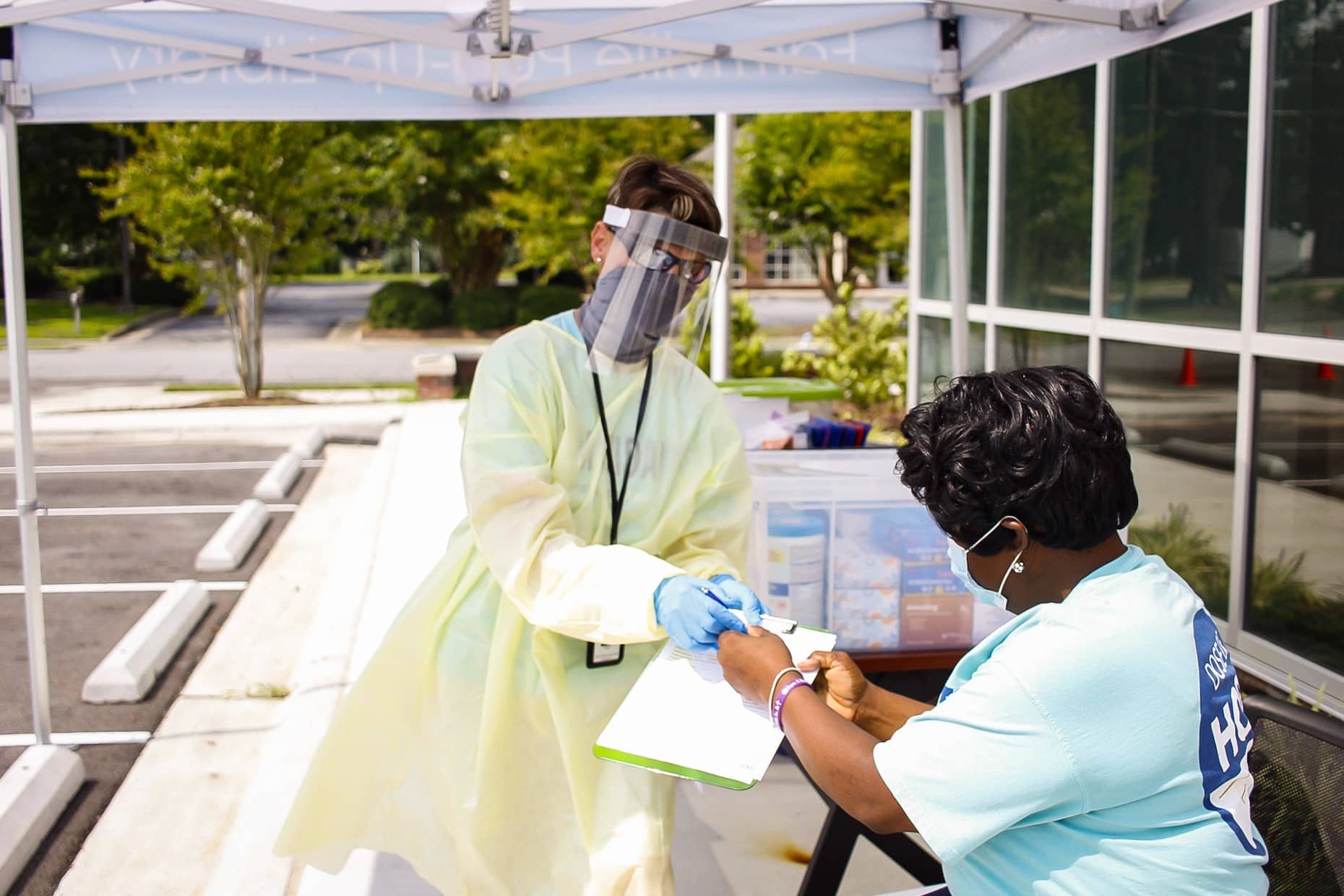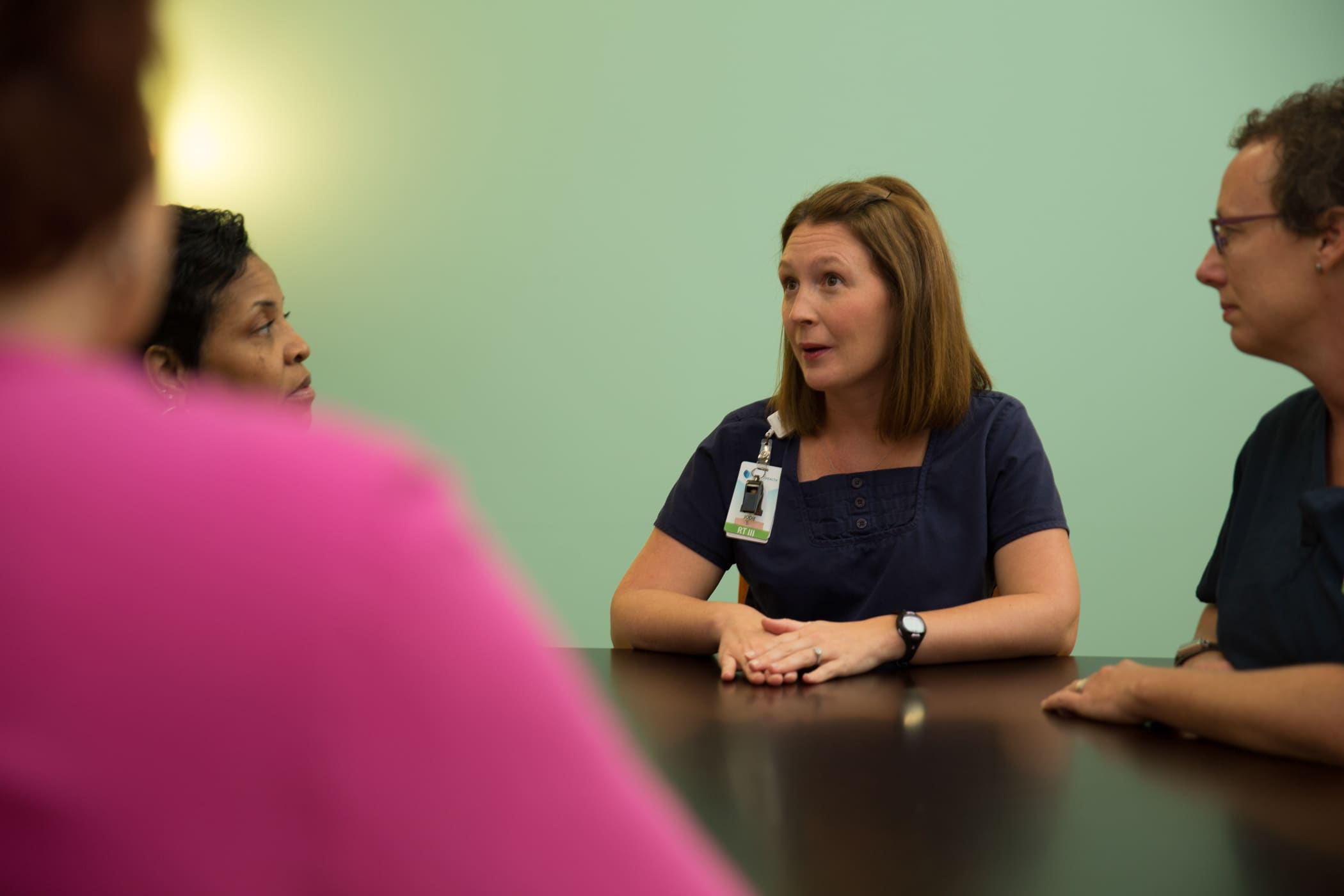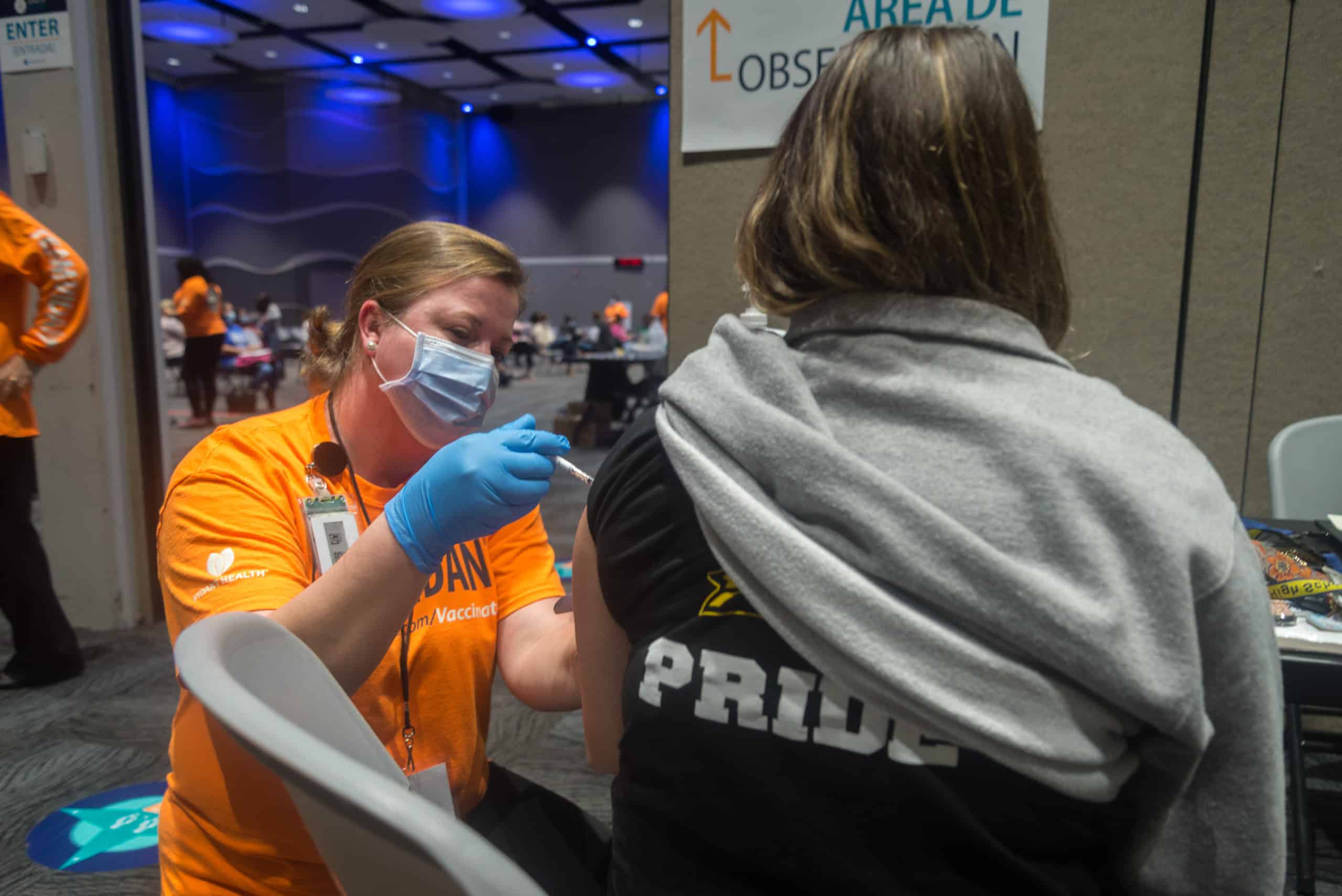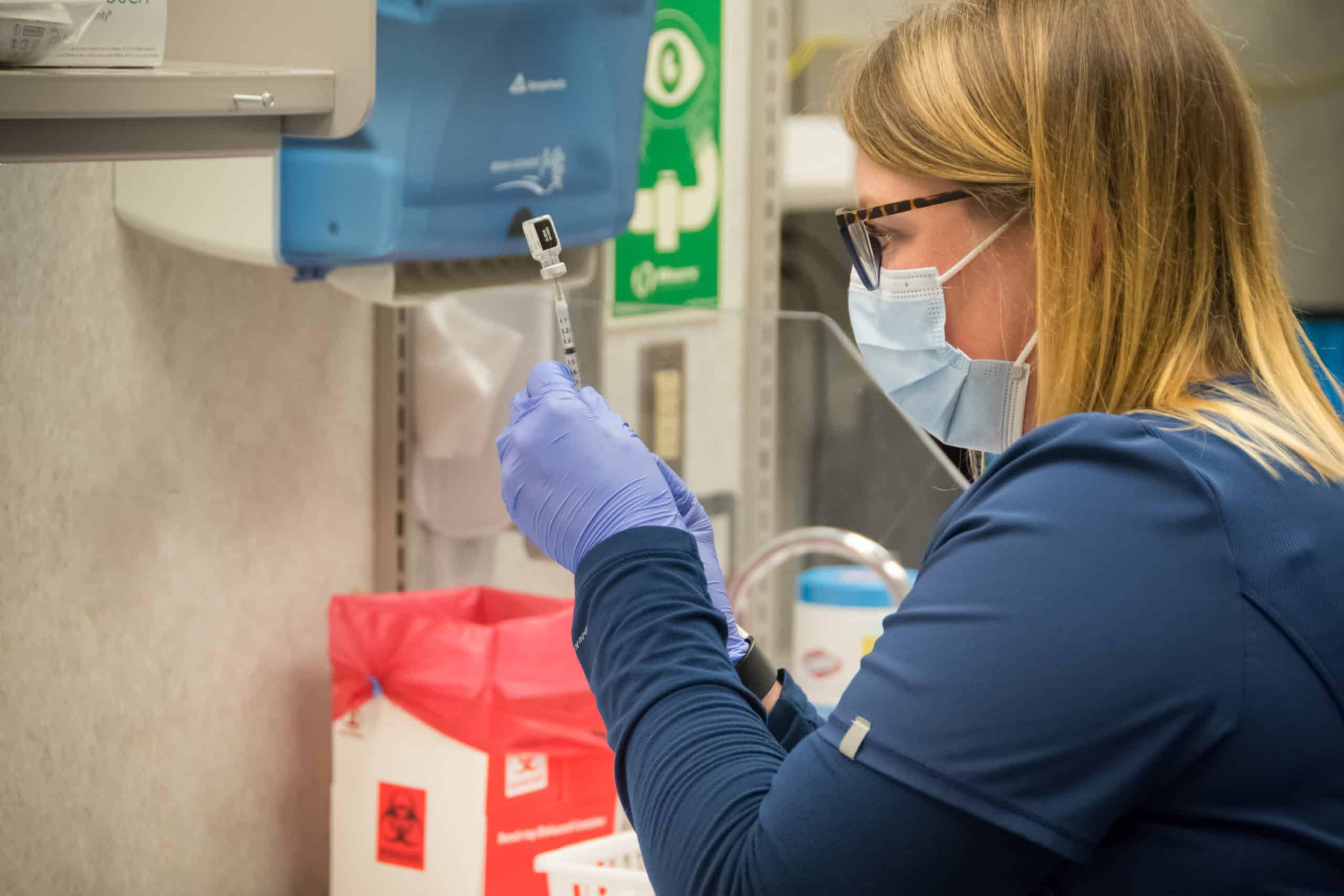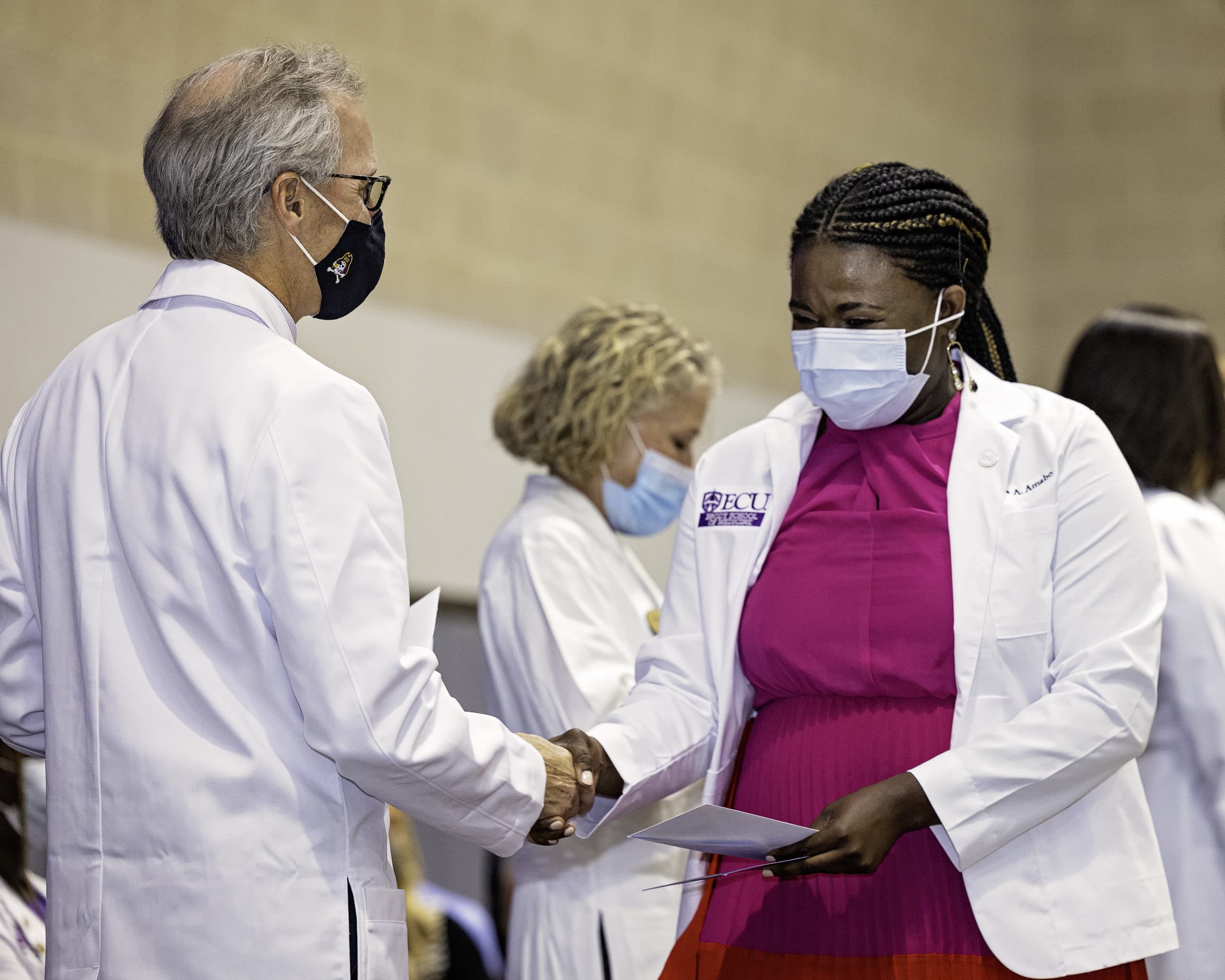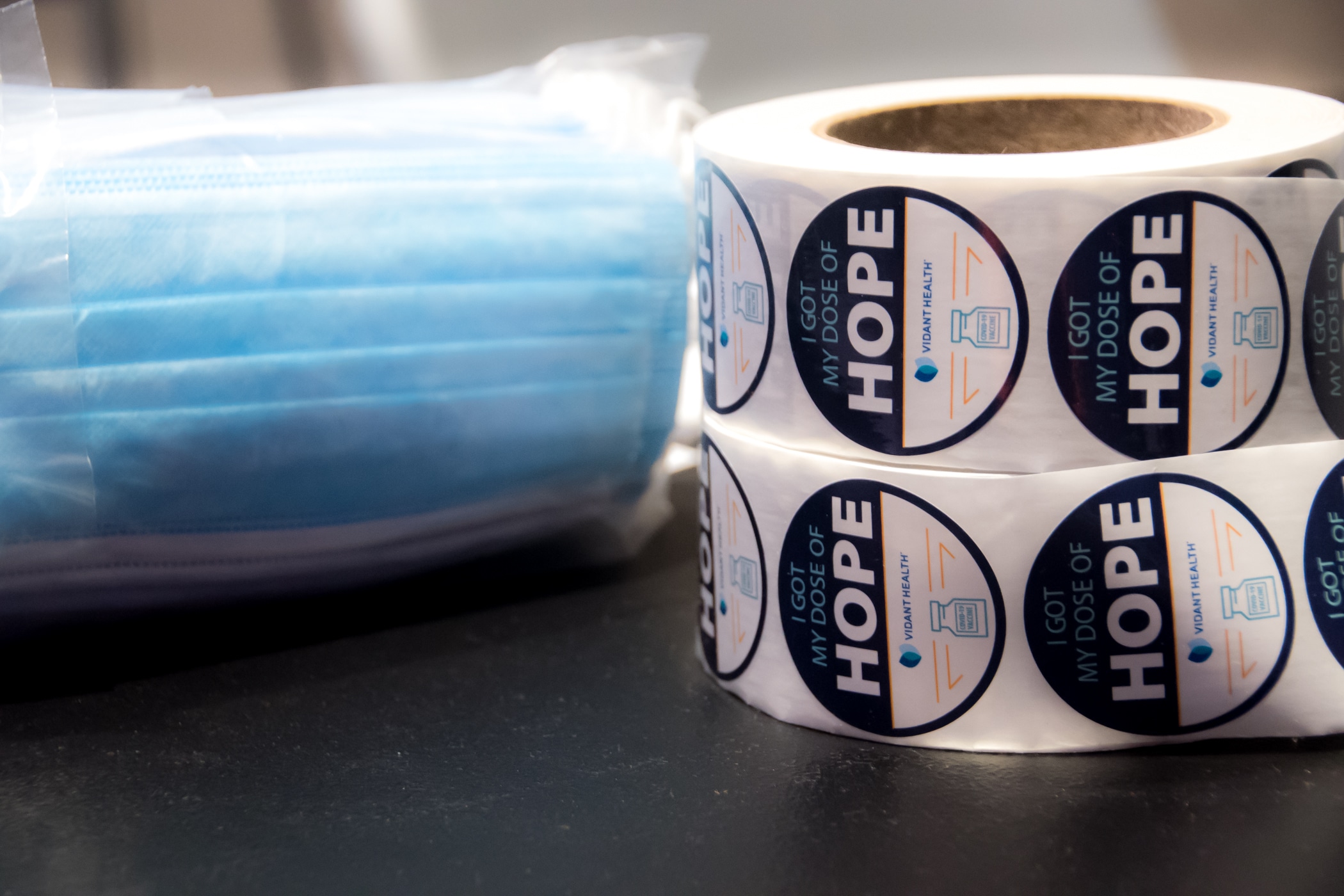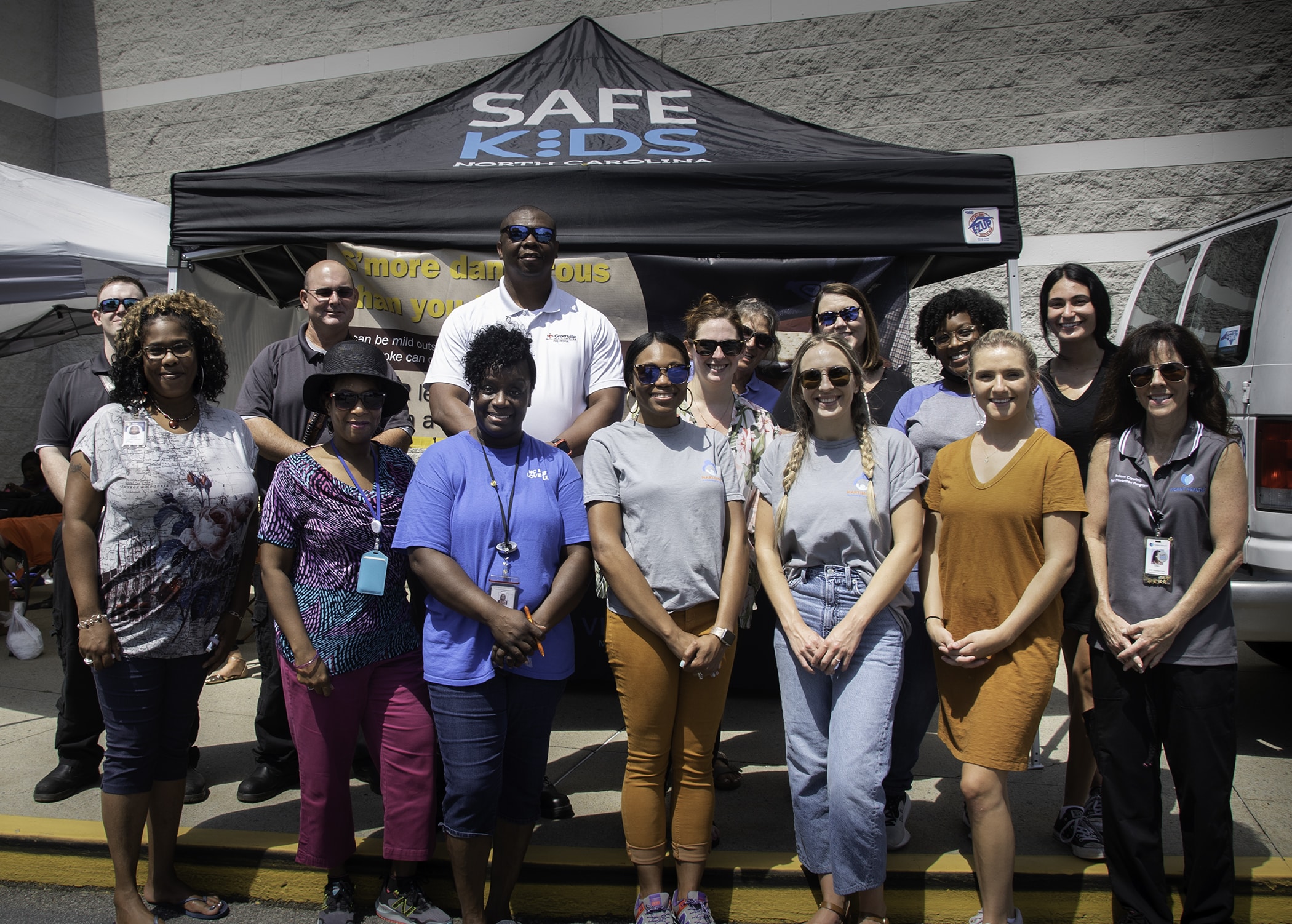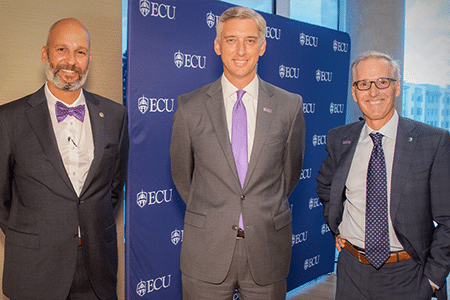Vidant Health’s mission to improve the health and well-being of eastern North Carolina stretches beyond the walls of our hospitals and clinics here in the East.
With recent Community Health events across the 29 counties we serve, Vidant is delivering health care in unique ways. Recently, Vidant partnered with local leaders and community groups to host these events in Grantsboro in Pamlico County and Farmville in Pitt County.
Community members had the opportunity to get health screenings, receive health coaching, learn about providers and health care options near them, and even receive a COVID-19 vaccine.
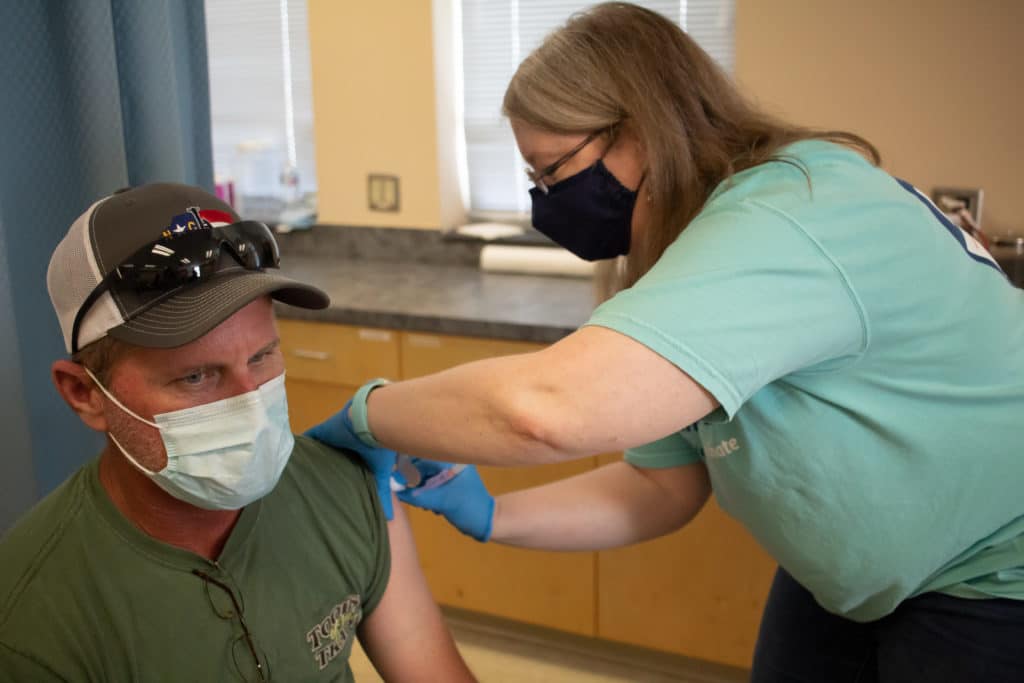
Cheryl Willoughby, project coordinator for Systems & Procedures at Vidant, plays a key role in organizing these events. She said it is crucial to bring health care to the people of eastern North Carolina because of Vidant’s unique rural positioning.
“Access to health care is a huge issue for a lot of the people that we serve,” Willoughby said. “So when we do these community events, that barrier is easily broken when we meet people where they are. That’s the exciting piece for me.”
Pamlico County Health Event
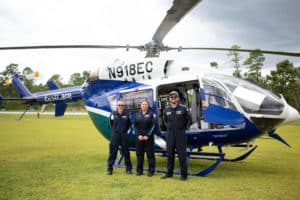 Vidant hosted a Pamlico County Community Health event on July 27 at Pamlico County Community College with great support from many local leaders and organizations. Pamlico County government, the Pamlico County Health Department and Pamlico County Community College all played a vital role in making the event possible.
Vidant hosted a Pamlico County Community Health event on July 27 at Pamlico County Community College with great support from many local leaders and organizations. Pamlico County government, the Pamlico County Health Department and Pamlico County Community College all played a vital role in making the event possible.
Vidant Beaufort Hospital, a campus of Vidant Medical Center, team members came out to the event to administer health screenings to community members, including body mass index measurements, blood pressure readings and blood sugar checks. Team members were also on hand to educate the community on colorectal cancer, diabetes and stroke.
Jennifer Lewis, community health improvement coordinator for Vidant Beaufort, said screenings and wellness checks events like these are crucial to making sure community members are staying on top of their health. She said that people will often go through everyday life feeling completely healthy while chronic illnesses like hypertension and diabetes go unchecked.
“We want to help identify some of those risk factors and maybe here we can share something with an individual that will get their attention,” Lewis said. “Hopefully we can get them in to see a physician and maybe make some changes in their diet, in their physical activity and if they need to get medication, that too.”
Dr. John Callahan from Vidant Family Medicine – Aurora was on hand to discuss any concerns with community members and to discuss COVID-19 vaccines with those interested. About 20 COVID-19 first doses were distributed to community members at the event.
The EastCare team also showed support for the Pamlico County event by showcasing a helicopter on the main road leading to the event and the Eastern Carolina Health Care Preparedness Coalition had a medical emergency bus and mobile field hospital out on display for the event as well.
Farmville Community Health Event
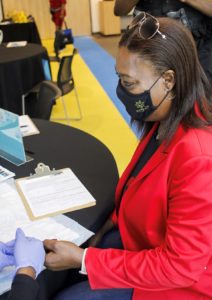 The following weekend, Vidant team members and community groups showed up again to bring health care directly to the communities we serve at the Farmville Public Library. Many of the same screenings and opportunities available at the Pamlico County event were brought to Farmville as well.
The following weekend, Vidant team members and community groups showed up again to bring health care directly to the communities we serve at the Farmville Public Library. Many of the same screenings and opportunities available at the Pamlico County event were brought to Farmville as well.
KaSheta Jackson, nurse executive fellow at Vidant, said the community partnerships Vidant has built and are working to strengthen are key to creating trust with the whole community. She said having those trusting relationships with community groups trickles down to individuals within communities and ultimately leads to better health for everyone.
“We are making sure that we are connecting with the community,” Jackson said. “We are here with CAREE, which is a community group. They’re doing our vaccines with the Pitt County Health Department. The local library, they’ve offered up the space. Cheryl (Willoughby) worked with a lot of local agencies here so that they would support it. We work with a lot of communities here because we don’t want to just come in, we want to be a part of how we improve health care in these comminutes.”
Along with health screenings and awareness campaigns at the event, behavioral health team members were on hand to provide support and share information. Vidant’s Talent Acquisition team also joined each of the events to make connections with community members seeking employment with the health system.
Jackson said the Community Health events are important to bringing health care to people and hopes that positive responses and results continue to come out of these opportunities.
“We are following the model of doing health care on the outside to make health care better on the inside,” Jackson said. “We’re working to address the social determinants of health, offering employment, trying to take care of the need for vaccines, taking health care into communities versus having people come to us – we’re taking services to those that need them.”
Where will we be next?
Vidant’s next Community Health event will be on Aug. 21 in Bethel at the Field of Dreams – additional information can be found on the Events page of VidantHealth.com.
With easing COVID-19 restrictions, we are on the move again, especially children and teens in sports. With that comes the potential for injury and Vidant Orthopedics and Sports Medicine is here to help.
Vidant Orthopedic surgeon Dr. Robert Palmer appeared on WITN to discuss common sports injuries and how to prevent them.

He said the most common sports-related injuries he sees are broken wrists and clavicle fractures. The most important things you can do for yourself or your child to prevent sports injuries is to maintain a typical healthy lifestyle and get plenty of Vitamin D.
Dr. Palmer said a unique risk this year is young people returning to sports after a year away.
“I’ve seen quite a number of children in my clinic who have gone back, and just participating in a field day event at school and they’ve actually gotten stress-related fractures from what we would consider everyday events,” Dr. Palmer said. “That is probably just because their bodies aren’t used to the load from sports. I think taking it slow and easing back into things and making sure they have a good healthy diet is a good start to prevent injuries.”
He also discussed the importance of the implementation of rules to limit overuse injuries. An example of this is rules set by youth baseball organizations in conjunction with Major League Baseball to keep children safe. Dr. Palmer encouraged coaches and parents to educate themselves on these rules and stay on top of them to keep children healthy.
While many sports-related injuries in children just require typical treatment like rest and ice, some are more serious. It can be challenging to know when it’s time to consult a physician but Dr. Palmer gave some tips on what to look for.
“When we see a patient, if they have limited range of motion, inability to weight bear, swelling about a joint, reduced motion about that joint,” Dr. Palmer said, “certainly if there’s a bone sticking out of the skin or there’s bleeding, those are more urgent things that we should address and potentially may need surgery. Other sports-related injuries are ACL tears or ligament tears and shoulder instability that we think about.”
Visit the Orthopedics and Sports Medicine section of VidantHealth.com to learn more about services Vidant offers.
These topics included psychiatric disorders, stress management, resiliency and substance use. This series came at a crucial time, as COVID-19 kept many people indoors and away from their typical routines. That isolation and facing many unknowns in our world brought out mental health challenges.
Data trends show a steady increase in adults suffering from anxiety, stress, and depression over the past year.
Glenn Simpson, system service line administrator for Behavioral Health at Vidant, joined WITN to discuss the series.
“Some studies are indicating that four out of 10 of us in the last year have experienced depression or anxiety in a clinical range,” Simpson said. “If you went back two years, that would have been one out of 10, so we are very concerned about people’s mental health. Often times we will take care of our physical health before our mental health. We’re hoping by this series to help folks reach out for the help they need.”
Simpson said the series was exciting and brought forward experts in the field to talk to the general public about mental health and well-being.
Video recordings from the series can be found in the Behavioral Health section of VidantHealth.com.
Anxiety in adults exasperated over the pandemic
A new study from GlobalWebIndex has shown that many adults are worried about the lasting effects the pandemic will have on mental health.
According to the study, 28% of Millennials, and 29% of Gen X adults believe the pandemic will have long-term impacts on their mental health. Additionally, the study found that anxiety, stress and insomnia had all risen across all age groups in the study.
Dr. Nathan Harper, medical director for inpatient psychiatry at ECU Health Medical Center and ECU, said he there has been an increase in patients for mental health needs and services, not only in adults but for children as well. Dr. Harper said he believes isolation from quarantine made some of these issues more prevalent.
Dr. Harper discussed the study and his experience during a recent interview with WNCT.
Vidant has resources and information available on the Programs & Support page.
COVID-19 continues to evolve and expand its grip across the country and here in eastern North Carolina.
“This is one of the most diabolical viruses I’ve ever seen,” said Dr. Paul Bolin, chief of Adult Medical Services at ECU Health Medical Center, and the chair of the Department of Medicine at Brody School of Medicine at East Carolina University.
“We were in a good place. Transmission had slowed down, more and more people were getting vaccinated and protected, hospitalization days started to really come down, number of cases started to come down – and many of us thought we were in the last leg of this marathon,” said Dr. Niti Armistead, chief medical officer for Vidant Health. “What changed was the vaccination rates just hit a wall.”
“In North Carolina, in the past three to four weeks, we have seen a tripling in the number of cases, and in the number of hospitalizations,” said Dr. Bolin. “We’re seeing the same things as we did last fall and winter, but it’s in a much younger and much healthier population.”
Another difference now – we have a vaccine.
“It’s like wearing your seatbelt – your chances of being in an automobile accident are very low, but your chances of surviving that with a seatbelt are much greater,” said Dr. Bolin. “Your chance of surviving COVID are 25 fold better with the vaccine than without it.”
Even still – roughly half of the country remains unvaccinated, enabling the virus to mutate and variants to cause an increase in infections and complications.
“The virus didn’t slow down just because our vaccination rates dropped,” said Dr. Armistead.
Experts say most concerns about the vaccine don’t outweigh the risk of being unprotected.
“I think the most important thing to understand is this: there have been some very small number of complications from the vaccine. And that is a one-time event that occurs after the vaccination,” said Dr. Bolin. “Your risk of dying from COVID if you’re not vaccinated continues day after day after day after day, until this pandemic is over with.”
Vidant Health has appointments available for anyone eligible to receive the vaccine. Visit www.VidantHealth.com/vaccinate and schedule yours today.
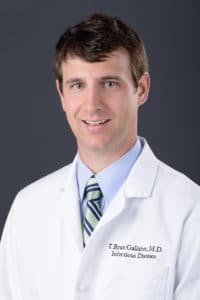 The arrival of the COVID-19 vaccines brought great hope in the battle against the deadly pandemic that has affected our way of life for nearly a year and a half. Now, more than 7 months into the largest vaccination effort in history, the data and science is clear: the vaccines are effective, but only if people get their “dose of hope”.
The arrival of the COVID-19 vaccines brought great hope in the battle against the deadly pandemic that has affected our way of life for nearly a year and a half. Now, more than 7 months into the largest vaccination effort in history, the data and science is clear: the vaccines are effective, but only if people get their “dose of hope”.
The continued spread of the virus and the arrival of new variants is an urgent reminder that this pandemic is not over yet, and that we still have to assure vaccination for everyone to protect our communities. Right now, the Delta variant is quickly becoming the dominant virus variant. We know that this variant is easily spread and has many of the same devastating health impacts as previous variants. We also know that the vaccines are highly effective at both preventing the spread of the virus and drastically reducing the impact on those it infects.
It was not long ago that some hospitals around the country celebrated having zero COVID-19 patients in their Intensive Care Units. Doctors, nurses and other staff rejoiced at this welcomed respite. Here at Vidant, we never quite got to zero, but our numbers hit a new low in the spring. Now, hospitalizations are back on the rise and nearly all hospitalized COVID-19 patients – many of whom are battling for their lives – are unvaccinated.
As we have continued to learn more and more about this virus over the past year and a half, we can confidently say that ending up hospitalized with serious complications from COVID-19 is mostly avoidable now. The vaccines are safe, effective and widely available at local hospitals, clinics, health departments, pharmacies and more.
We can still see the light at the end of the tunnel but the Delta variant is dimming our view. Help us end this pandemic by receiving your COVID-19 vaccine as soon as possible by visiting VidantHealth.com/Vaccinate or by calling 252-847-8000.
The ceremony signified each student’s entrance into the medical profession and the beginning of their commitment to serve others. While they will take classes at the Brody School of Medicine, each student will gain crucial experience at ECU Health Medical Center and throughout the Vidant Health system.
Dr. Michael Waldrum, CEO of Vidant Health and dean of the Brody School of Medicine, served as keynote speaker for the event.
“A white coat is a symbol of being a physician, part of a unique and special profession,” Dr. Waldrum said. “It’s unique in its caring and helping when people and communities need it most. It’s about human relationship and understanding each other. It’s about constant learning and striving. We’ll never stop dealing with the issues – that’s what this profession is about.”
This incoming class is the first that Dr. Waldrum will oversee as dean of the Brody School of Medicine after taking on the position at the beginning of July. The Class of 2025 will experience ECU and Vidant’s clinical integration as both aim to better serve eastern North Carolina.
Dr. Waldrum said this is a critical step to address the challenges we face here in the East.
“This is a special time for me as a young dean – young in my tenure – because of the profound responsibility that I have as we integrate the Vidant Health system and the Brody School of Medicine and build on the foundation that has been created,” Dr. Waldrum said. “I’m excited to strengthen our communities and deal with the disparities and the issues we are faced with as rural North Carolina and rural America.”
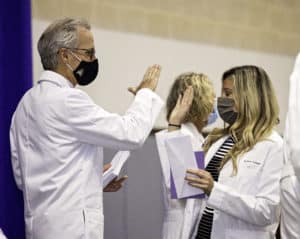
Photos Courtesy of ECU News Services
The class is set up for success with varied experiences, the hunger to learn and a health system a school of medicine ready to support each student.
The 89 students include 45 students that graduated with honors, five collegiate athletes, two veterans and five who had parents that graduated from Brody. Dr. Cedric Bright, associate dean for admissions at Brody School of Medicine, said 14 percent of the class are first-generation college graduates and 44 percent of the class are re-applicants to the program – a testament to the resiliency of the class.
“You all have incredible stories, about caring, about bringing what North Carolina has in diversity, experience, pursuit of knowledge – all of these to make North Carolina better,” Dr. Waldrum said. “Those are the stories I’ve heard and that’s the story of the Brody School of Medicine. Those diverse perspectives in life coming together to learn and grow is how we collaborate to solve systemic issues that plague our communities and it’s our responsibility to do so.”
There were more than 1,200 applicants for the Class of 2025 – a record number for the Brody School of Medicine. Dr. Waldrum said it was not surprising as he believes young people were energized during the COVID-19 pandemic to help people in need of health care.
Dr. Waldrum said the Brody School of Medicine is crucial in producing what North Carolina needs from physicians.
“Brody School of Medicine has been so important in moving eastern North Carolina forward and serving the state and rural populations,” Dr. Waldrum said. “I’ve said it a million times – Brody is the highest value medical school in the country because, if you look at the investment by the state to have a physician stay in the state and practice in rural and underserved communities, there’s nobody in the nation that does it better than Brody.”
As part of our commitment to protecting and caring for those we love, Vidant will require the COVID-19 vaccine as a condition of employment for all team members, physicians, credential providers and contract workers.
This decision is grounded in science, backed by industry leaders such as the American Hospital Association, American Nurses Association and the North Carolina Healthcare Association, and is the right thing to do to ensure the safety of our patients, team members and communities.
Timeline:
- Leaders (managers and above), physicians and credentialed providers – Deadline to complete vaccine series: Oct. 1, 2021
- Team members, new hires, contract workers – Deadline to complete vaccine series: Dec. 1, 2021
Exemptions:
In addition to other important safety measures like the flu vaccine, the COVID vaccine will become a condition of employment; which means in order to be employed by or work at Vidant, team members must be vaccinated by the deadlines outlined above or have an approved medical or religious exemption. Ongoing requirements for those meeting medical/religious exemptions may include weekly testing and potential reassignment away from working on units with immuno-compromised patients.
Meeting the mission to improve the health and well-being of eastern North Carolina means taking all necessary actions to combat and hopefully end the COVID-19 pandemic, which has claimed more than 600,000 American lives. Several hospitals and health systems in North Carolina, and many across the nation, have already announced vaccine requirements for their team members. It is the right thing to do for the safety of all, especially as the variants prove to be more transmissible and severe for those not vaccinated.
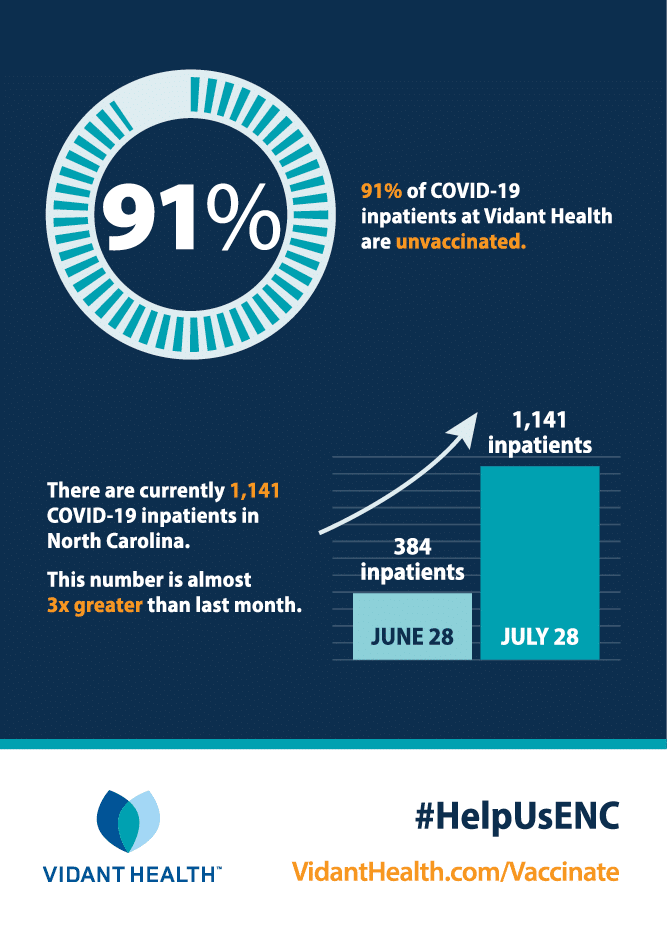
Vidant Health’s Eastern Carolina Injury Prevention Program (ECIPP) partnered with Martin-Pitt Partnership for Children, the Pitt County Health Department and Greenville Fire-Rescue to educate community members about the dangers children, senior adults and pets can face in a hot car.
ECIPP Coordinator Ellen Walston said five children have already died in the United States this year from being left in a vehicle on warm days. Since 1998, when tracking began for these deaths, there have been 888 deaths across the country.
“Temperatures rise so quickly in a car and when a car is enclosed,” Walston said. “There is a myth that if you crack a window, the temperature will be reduced and that really does not happen. They heat up so quickly and we actually have a way to measure that today, just to show you how quickly cars can heat.”
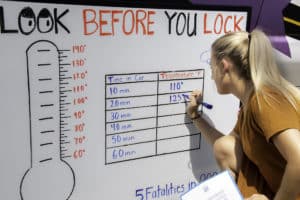 This exercise took place on a 90-degree day. The temperature inside a parked car rose to 110 degrees within 10 minutes and over 120 degrees within 15 minutes.
This exercise took place on a 90-degree day. The temperature inside a parked car rose to 110 degrees within 10 minutes and over 120 degrees within 15 minutes.
Walston said while the risk is still high for seniors and pets, the majority of deaths that occur are in children under 2 years old. Children have less body surface area, so they are not able to cool themselves as quickly as adults and most of these children cannot verbalize if they are too hot.
In 53 percent of cases, a child is forgotten in the car by a parent or caregiver – often because that person is out of their daily routine. Walston said leaving a reminder for yourself can save a life.
“We always want to make sure that you have some type of reminder for yourself that the child is in the car because we do want the child to be in the rear seat,” Walston said. “If you can put your purse, a briefcase, your wallet, something in the backseat to remind you. We also have plenty of alarms on our phones and other devices that we use – just set an alarm. Particularly if it’s out of your normal routine.”
This reminder came at an important time as more people are out and traveling and running errands away from the house this year as COVID-19 restrictions are loosened and routines have changed.
Walston said now is the time to be vigilant if you are traveling with children, a senior adult or pets — or if you see one in a hot car.
“We always want a bystander to act and that means you need to take action right away,” Walston said. “So many times people are concerned about breaking a window, if they would be responsible. We ask you to take action, we ask that you immediately call 911. Please don’t wait to see if someone else will take action. We never want them left alone in a car – even for one minute.”
Learn more about the varied support ECIPP offers by visiting VidantHealth.com.
Greenville, N.C. – June 28, 2021 – The 2021 Vidant Health Board Quality Leadership Award winners were recently recognized by the Vidant Health Board of Directors for their improvement of patient care. These winning teams are a representation of excellent work across the system that drives the quality goal of zero harm, creates exceptional experiences and improves patient outcomes. Nine nominations were reviewed by the committee and the winning teams are as follows:

- Vidant Edgecombe Hospital: “Impact of a Palliative Care Program in a Community Hospital” was selected for its work in reducing the mortality rate and readmission rate by five percent.
- Vidant Family Medicine – Edenton: “Responding to COVID-19: Building an Airplane While Flying” for its work to establish a fully functioning respiratory clinic by April 9, 2020, that would see patients requiring screening, testing and treatment for COVID-19 infections.
- ECU Health Medical Center, Maynard Children’s Hospital team: “A Sustained Improvement in CLASBI Reduction” for its work to reduce central line associated blood infections in Maynard Children’s Hospital by 50 percent.
To receive this honor, team members submitted projects that demonstrated at least two of the following requirements:
- Quantifiable improvement in an organizational quality priority with sustained excellence over time
- Demonstration of empathy and compassion in patient care
- Implementation of innovative solution to patient care problem
- Community outreach that addresses the social determinants of health in a meaningful way
“We are proud to see team members from across Vidant Health recognized for their hard work and dedication to patient care,” said Dr. Shirley Carraway, Ed. D, chair of the Vidant Health Board of Directors. “The pandemic brought unique challenges to healthcare and these team members continued to innovate and improve the health and well-being of eastern North Carolina, and we are proud to honor them in this way.”
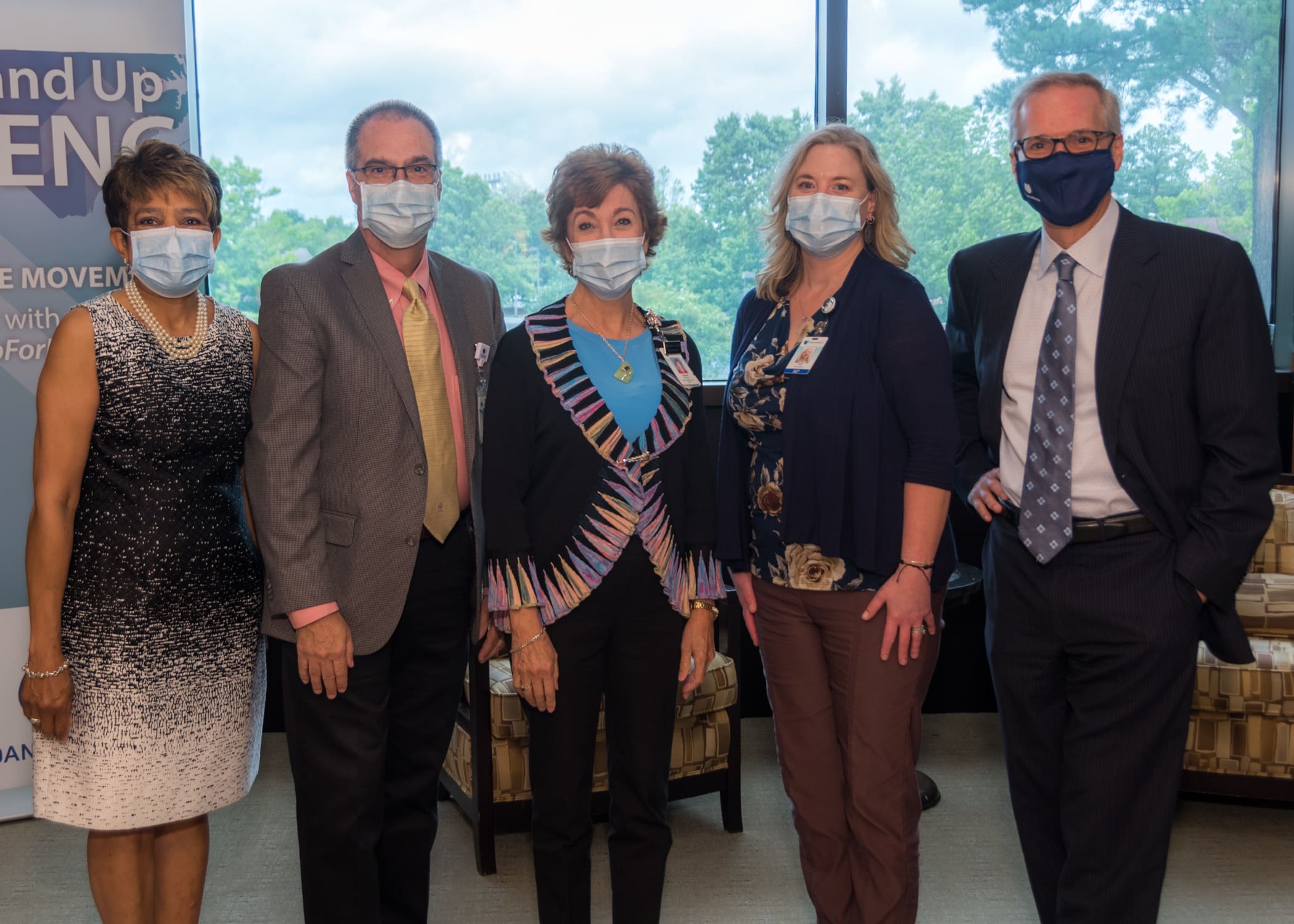
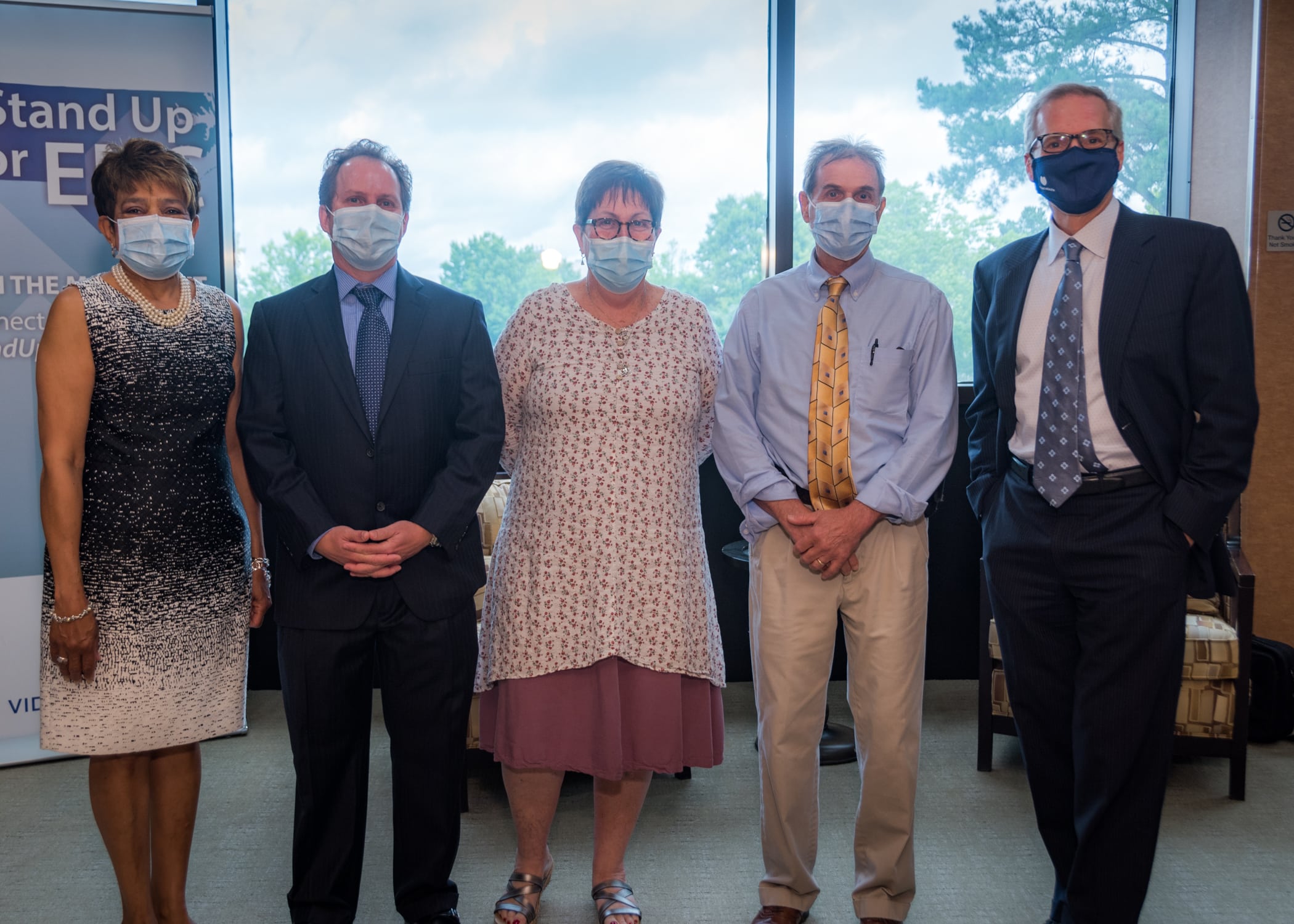
Vidant is excited to learn that Dr. Michael Waldrum, CEO of Vidant Health, has been appointed the Dean of the Brody School of Medicine at East Carolina University, effective July 1. Dr. Waldrum is humbled by the appointment and grateful to Chancellor Rogers for the opportunity to lead this historic transformation of health care for the benefit of our residents, team members, providers and communities we serve.
This is a significant moment in the history of Vidant and Brody, which could not have been possible without the extraordinary foundation built by Vidant and ECU’s visionary predecessors. The Brody School of Medicine and Vidant have a shared desire to enhance, grow and sustain access to high-quality health care to rural communities across eastern North Carolina today, tomorrow and for generations in the future – and this closer alignment reaffirms a joint commitment to build a premier academic health care enterprise for eastern North Carolina.
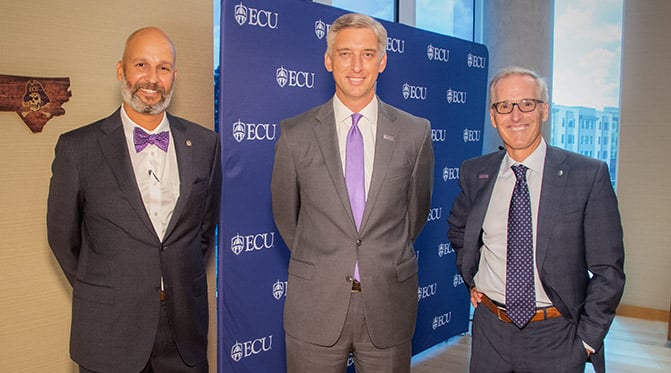
This strategic partnership is an important step toward the collective goal of clinically integrating Vidant and the Brody School of Medicine. Working together through a thoughtful and deliberate process, both organizations will work toward creating a new, distinct academic health care brand that will work in collaboration to adapt and succeed in a rapidly changing health care landscape. The mutual goal is to transform together, build on combined strengths, and become pioneers in creating a regional population health care, research and educational enterprise.
To learn more, please visit ECU.edu.
